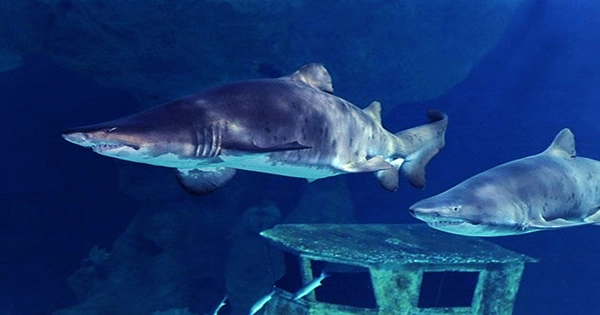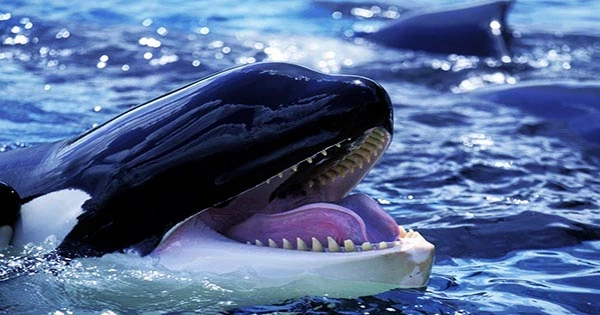For the past five years, a pair of killer whales (Orcinus orca) have been terrorizing communities of great white sharks off the coast of South Africa. The lethal pair has murdered at least eight great whites since 2017, tore them apart, and gorged themselves on their livers (in all but one case). The two men occasionally even plucked the hearts from their victims in their bloodlust. They are still at loose and doing havoc close to the Gansbaai coast of South Africa as Port and Starboard, to use their pretty innocent nicknames.
A research that tracked the great whites’ travels for several years and was published in the African Journal of Marine Science details their reign of terror. The investigation discovers that it appears the sharks may have been scared away following the orcas’ killing spree. Since 2017, eight great white sharks (Carcharodon carcharias) with evidence of an orca assault have washed up on beaches near Gansbaai, Western Cape Province. Five carcasses, or the bulk, were discovered between February and June 2017, which was a highly violent time for the whale pair.

The same two orcas are believed to be responsible for all of the wounds and deaths, which is rather convincing evidence that has made Port and Starboard, who can be identified by their collapsed dorsal fins, the leading suspects. This is probably just the tip of their wrongdoings; many more great white sharks may have been killed but never washed ashore.
Great white sharks appear to have fled, maybe in reaction. Who could blame them, though? Prior to 2017, there were around six great white sightings every day, according to the latest research. This decreased to about one in the six months after the killer whale attacks and remained low (below two) during 2018 and 2019. Similar information is provided by electronic tracking data, which demonstrates that some sharks traveled hundreds of kilometers away from Gansbaai in the days following an orca assault. North of East London, 900 kilometers (560 miles) to the east, a very daring shark was found.
According to the study’s principal author, Alison Towner, “what we seem to be watching is a large-scale avoidance (rather than a fine-scale) technique.” “The longer the Great White Sharks remain away, the more frequently the Orcas visit these places.” According to Towner, their exceptional absence has allowed for certain changes in the ocean environment.
It has caused the Bronze Whaler Shark [Carcharhinus brachyurus], a mesopredator that the Great White Shark is known to devour, to emerge in the area. The new sharks on the block are not safe from the orcas’ wrath, either, and are also being attacked, Towner added. Further down the food chain, this disruption of the natural order might also have disastrous effects: “Without Great White Sharks regulating Cape Fur Seal behavior, the seals can prey on critically endangered African Penguins, or compete for the tiny pelagic fish they consume,” Towner noted.
What about the potential perpetrators of this chaos? Uncertain are the deadly motives of Port and Starboard. Towner hypothesized that it may “be tied to a drop in prey populations” for both species. The two could perhaps belong to a unique killer whale subspecies that is known to hunt sharks. Or perhaps they weren’t responsible for this after all. The authors speculate that fishing or fishing-related decreases in prey may also be to blame for the decline of great white sharks. The verdict isn’t in yet. Port and Starboard are free to kill another day in any case.















